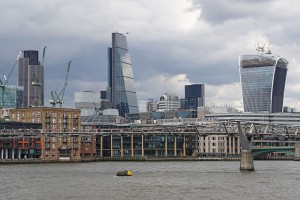 In the UK right now we are in the middle of election fever, or I guess for most of us election overload, to the point where you feel like shouting, please can we just vote and get it over! Which I know is the wrong attitude. After all whether the party we vote for or not get in, it is going to affect our future. Not that we’ll ever know of course what it would have been like if a different party had got in.
In the UK right now we are in the middle of election fever, or I guess for most of us election overload, to the point where you feel like shouting, please can we just vote and get it over! Which I know is the wrong attitude. After all whether the party we vote for or not get in, it is going to affect our future. Not that we’ll ever know of course what it would have been like if a different party had got in.
Oh, they’ll tell us it would have all been so much better if they’d been elected. Just like those who are not in office now use the old ‘hindsight-a-scope’ to tell you how they would have done things different in the last five years and everything would have been soooo… much better. It’s like if the idea hasn’t come from your own party it can’t possibly be right? I feel by the law of averages that can’t be correct. However, that I’m afraid seems to be politics. Oh and at this point I should say I do believe in voting. If nothing else it gives you the right to moan as in ‘I didn’t vote for that, them, him, it,’ etc.
But what is intriguing me this time as a science fiction writer is here in the UK the rise of the nationalist parties, in Scotland, Wales and Northern Ireland. No matter what you think of them they are an increasing force in our politics. I find it interesting in a world of ever increasing communication and a global economy we are moving towards being more parochial in our politics. Instead of, as seemed the case, a decade or so ago when there was talk of almost a federal Europe we are now trying to break up Europe (and perhaps the world?) into smaller units. This, to me, doesn’t seem like good news for those global issues such as world poverty, climate control, or future space exploration. You are just going to have many more voices with different ideas and agendas. More talking and less action (if that’s possible?).
 So why? Is it that the problems of the world are just so big we feel unable to cope or connect with them, that we feel on safer ground when we can restrict them to a local level. Is it that as families become ever more spread out and communities less, well, community minded we feel the need to belong to something or somewhere and a national flag, or the equivalent, is an easy thing to hang onto? I know in my own case that since having less and less actual contact with Northumberland (where I grew up) I’m drawn to watching anything on television from that part of the country. I still want to feel connected to it.
So why? Is it that the problems of the world are just so big we feel unable to cope or connect with them, that we feel on safer ground when we can restrict them to a local level. Is it that as families become ever more spread out and communities less, well, community minded we feel the need to belong to something or somewhere and a national flag, or the equivalent, is an easy thing to hang onto? I know in my own case that since having less and less actual contact with Northumberland (where I grew up) I’m drawn to watching anything on television from that part of the country. I still want to feel connected to it.
Or is it that within the smaller units we fall easy prey to the alluring arguments that whatever goes wrong it is always someone else’s fault? (forgive me, but it does seem that is an argument often used).
Perhaps, it will go in cycles, we’ll split into smaller and smaller governing units only to find that the problems aren’t resolved, that they don’t go away. Then we’ll believe in the benefits of a larger group, economies of scale and all that. And maybe that’s healthy, that the best thing we ‘the people’ (not forgetting that, contrary to popular opinion, politicians are people too), can do for politics is shake it up from time to time and stop the politicians becoming complacent.
What it does do is scupper the popular, and convenient for science fiction, idea of ever having a world government (see my blog ‘A World government – a sci-fi myth?‘).
As always, thoughts and ideas are welcome
Ian Martyn
